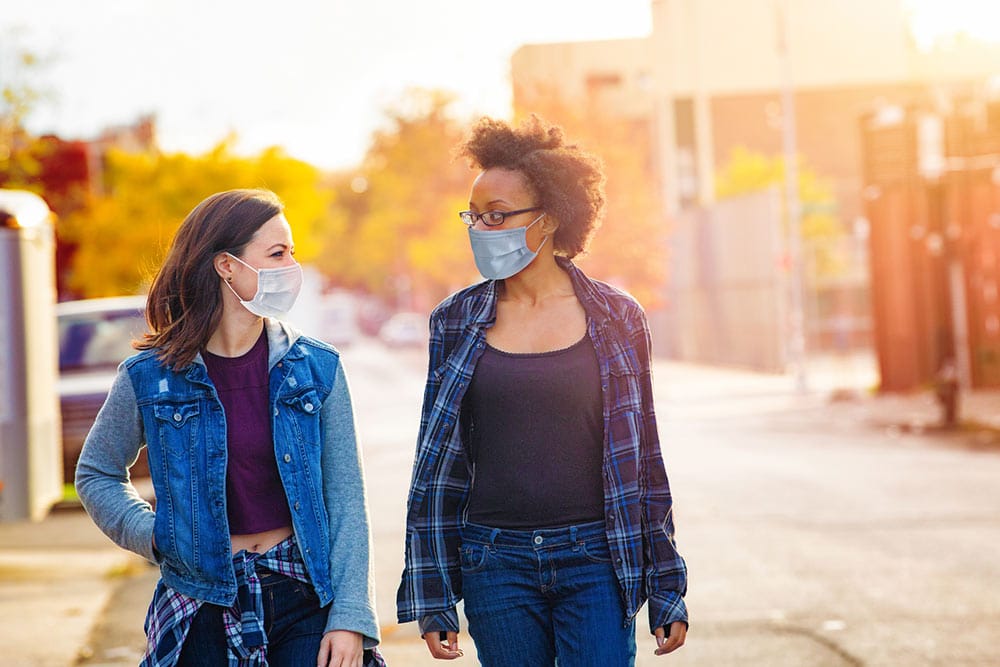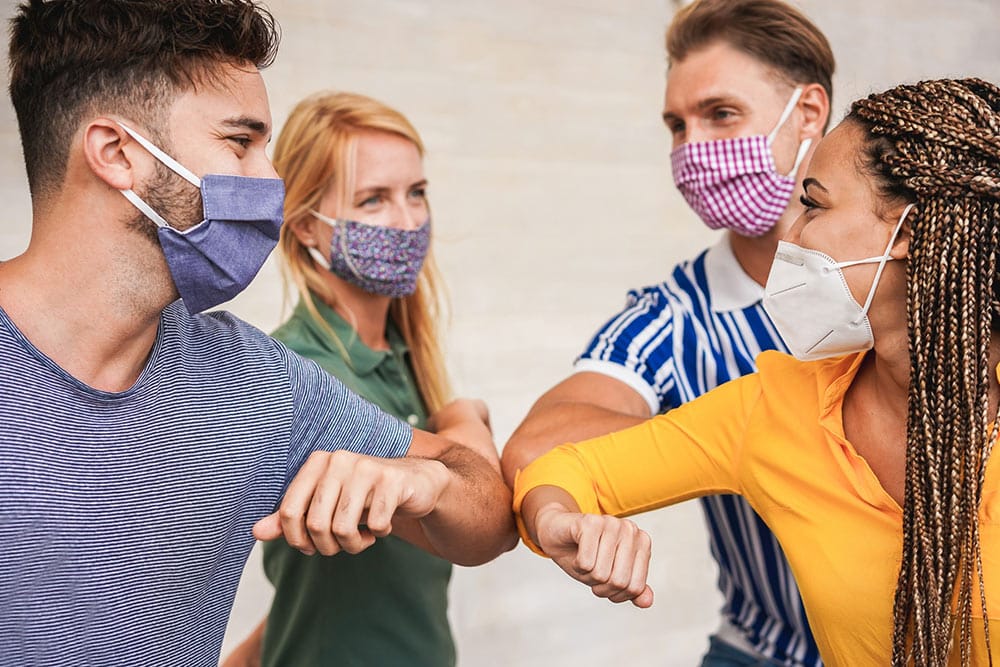Summer has been a welcome reprieve for many. We’ve had a moment to catch our breath, enjoy the soothing world of nature, and have some socially distanced fun. But as businesses and institutions open up again, uncertainty inevitably returns. Sending children to school in masks and not knowing when a virus might break out, makes for some inevitable trepidation. And wondering if sheltering in place will come back, or homeschooling will start up again, doesn’t help either. We can’t help experiencing some level of anxiety around what the day, week, or month might bring.
On the brighter side, we’re up-to-speed on COVID protocols, we know the drill. Last March you couldn’t find toilet paper or hand sanitizer anywhere, supermarket and pharmacy shelves were bare on basics. Now things have evolved a bit. Our September “unavailables” look somewhat different. Fancy, outdoor firepits and exercise equipment are the items currently in high demand. In short, we’re learning how to cope, how to stay fit, how to eke out a little bit more outdoor socializing and stay safe and sane. We’re catching on to the idea that we need certain things to stay happy. People are taking up hiking, meditation, and looking into the kinds of activities that promote a sense of well-being.
u003cpu003eSo, the good news is, the initial shock is over. Our home offices are set up, we have Zoom lights, and ergonomic chairs, and our closets are filled with all variety of masks, soap, and paper towels.u003c/pu003ernrnu003cpu003eOn the less-good news front, u003ca href=u0022/blog/will-covid-cause-a-mental-health-crisis/u0022u003eCOVIDu003c/au003e is still an unfolding set of unpredictable events over which we have little sense of control.u003c/pu003e
Over time, this type of uncertainty and anxiety can contribute to what is referred to as cumulative trauma. When I use the word trauma, I don’t want to sound alarming, but alongside the increase in firepit sales is a big upward spike in recreational cannabis and liquor. This can be a slippery slope. As we all know, more drug use can open the door to increased levels of abuse and depression. People are trying to keep their moods up and regulated, but self-medication eventually leads to more dysregulation. That’s why healthy forms of self-care are more important than ever.
So maybe our growing edge this time around is to do our best to stay out of catastrophizing, overwhelm, and self-medication, to gather up our best attitudes and strategies, so that we can deal effectively with part two of this wild COVID ride.

Avoid Pitfalls
Along with adopting a rigorous plan of self-care, we need to keep a watchful eye on the kinds of inner and relational dynamics that throw us off our healthy track and undermine our best efforts to stay balanced. There are classic problem factors, mood dysregulation being one, that can make managing a trying situation even harder. That’s why understanding some of the sneaky ways in which hidden anxiety, extra edginess, and depression might show up in our lives, can give us both a heads up and a head start.
Emotional and Psychological Extremes
Trauma, whether from a single event or a series of cumulative ones, can shape how we think, feel and behave. It can lead to emotional and psychological extremes, and those extremes can evidence themselves in our lives in many different ways. Volatility for one. We can find ourselves cycling back and forth between feeling overwhelmed and shutting down. We seesaw between opposing poles.
On the other hand, we can get stuck at either end. We stay shut down or numbed out and avoid pain. Or we’re in a state of intensity and overwhelm too much of the time. We have trouble, in other words, regulating our emotions and our thinking. Whenever I see black and white responses with no moderation, no shades of gray, I explore what might be driving those forms of overreaction.
Some manifestations of mood dysregulation might be:
Black and White Thinking
Overreaction: Rigidity. Needing to be in control of everything, not being able to entertain opposing points of view, or being overly dogmatic and seeing only one side can be forms of black and white thinking.
Underreaction: Chaos. On the other hand, not being able to make a plan, think clearly, or find order in the home or day can be a direct result of the flip side of black and white thinking.
Hypervigilance vs. Denial
Overreaction: Hypervigilance. Being constantly on guard, experiencing an over-sensitivity to potential threats, over-responding to slights, scanning the environment for signs of threat, and waiting for the other shoe to drop are all possible forms of hypervigilance. “What will go wrong, what is going wrong, what always goes wrong?”
Underreaction: Denial. Denial is a disavowal or rewrite of reality to make it more palatable, a form of anything from wishful thinking to delusion. “I don’t need to wear a mask, this isn’t serious, everyone is making too much out of this thing. The deaths aren’t real, the illness is misreported.
Abuse vs. Neglect
Overreaction: Abuse. Abuse can take the form of yelling, raging, bullying or “riding” someone, over-controlling/over-disciplining or physically pushing/shoving/out-powering, dominating or hitting another.
Underreaction: Neglect, under-caring. Neglect can take the form of ignoring someone’s needs, withdrawal of connection and care, not helping them when they need it, turning a blind eye or actually neglecting them by not attending to their basic needs.
Going Nuts vs. Going Numb/Self Medicating
Overreaction: Acting out behavior. This can take the form of “flipping our lids”, essentially losing it, by-passing thought and moving straight into a full out limbic storm of activity such as explosions of anger, rage, tears, hysteria and so forth.
Underreaction: Numbing out. This will likely be some form of self-medicating like over-eating, under-eating, sexual acting out, drinking/drugging in order to manage our turbulent inner world. It can also be a more controlled form of unbridled activity such as over spending, over-doing/frenetic activity, or frenetic exercise, work or business.

Pre-Trauma vs. Post-Traumatic Growth
Here are some helpful tips to make it more likely you will come out of this period having experienced some positive growth:
- Take it slow – Move through this period a day at a time, a week at a time, a month at a time.
- Don’t pile on – We’re all under unusual stress these days — it’s part of our “new normal” — so don’t pile on more. Don’t make this the day you address all that’s wrong in your relationship, with your children, with yourself, with your life.
- Maintain self-care – This has to be non-negotiable.
- Go outside – Every chance you get, everywhere you can, get outdoors.
- Be positive about the future – Stay out of negative forecasting. It will make the present feel more unmanageable and sabotage your future happiness.
- Put a temporary frame around this period – It’s perfectly realistic to think this won’t last forever, or perhaps even for another year.
- Stay open – Resisting change is pretty normal. Instead, create an adaptive mindset. Embrace the idea that life is always changing, that things don’t ever stay the same.
- Process what comes up – Hidden pain can get triggered by circumstances that mirror dysfunctional family dynamics such as unpredictability and feelings of being trapped by warring or conflicting opinions. It’s easy to project unresolved pain from the past and make it a part of the present.
Lean into Mindfulness
Meditate. Go within. Breathe. Seek your sense of stability by quieting your mind, by taking a break from your thinking. Watch your thoughts rather than getting involved with them. Don’t get caught up in your own recycled thinking. Stay out of obsessive, spinning, or negative rumination. Maybe watch it, but don’t feed it. Instead, go into your body, feel what you’re feeling, experience it, and let it subside. Don’t generate more spin, just experience through what is there and let it pass. Maybe you can’t always make it better, but you don’t have to make it worse.
Last but not least, keep a gratitude list, now more than ever, to take stock of all of the unexpected positives in your day. What have you learned and how have you grown by meeting challenges head on? All of this will pass, but the learning you become aware of and the growth you experience as a human being, as a partner, parent or friend will last.

